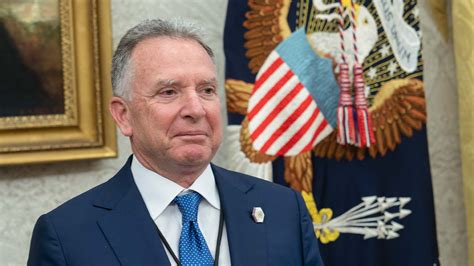Russian negotiator Kirill Dmitriev recently hinted at the possibility of offering security guarantees to Ukraine during high-level discussions at the White House. This development comes as a ray of hope in the midst of the ongoing conflict between Russia and Ukraine, which has escalated following Moscow’s invasion earlier this year.
Dmitriev, a key figure in Russia’s leadership circle as the head of the country’s sovereign wealth fund and a close advisor to President Vladimir Putin, embarked on a significant visit to Washington for talks aimed at jumpstarting peace negotiations that had hit an impasse.
Amidst mounting tensions and accusations from both sides regarding violations of agreements, Dmitriev engaged in intensive discussions with American envoy Steve Witkoff. These deliberations were part of broader efforts initiated by former President Donald Trump to broker a ceasefire and establish lasting peace between Russia and Ukraine.
The atmosphere surrounding these talks was tense, with Kyiv accusing Moscow of disregarding previous agreements by targeting critical infrastructure and energy facilities shortly after commitments were made. Despite these challenges, Dmitriev expressed optimism following his meetings at the White House, suggesting that Russia could consider providing security assurances to Ukraine.
In his statement to Fox News, Dmitriev acknowledged that while some form of security guarantees might be on the table, he categorically dismissed any possibility of Ukraine joining NATO—an idea vehemently opposed by Russian leadership. Ukrainian President Volodymyr Zelenskyy has consistently advocated for security assurances as a means to prevent future aggression from Moscow, emphasizing options such as NATO membership or deployment of U.S. and European peacekeepers in the region.
Dmitriev’s willingness to entertain the notion of security guarantees represents a shift from Russia’s usual stance on the matter. President Putin had previously insisted on what he termed as Ukraine’s
“demilitarization”
as a prerequisite for peace negotiations. Additionally, Russian Foreign Minister Sergey Lavrov adamantly rejected the prospect of European forces serving as peacekeeping troops in the region.
The prolonged conflict has led to growing frustration among international observers over perceived delays and obstacles hindering progress towards a resolution. Former President Trump himself acknowledged potential stalling tactics from Kremlin officials regarding ceasefire discussions and even expressed frustration towards Putin over certain statements targeting Zelenskyy.
As diplomatic efforts continue amidst uncertainties and escalating tensions, there are calls for caution in engaging with Russian authorities until concrete commitments towards de-escalation are made. The delicate balance between ensuring Ukrainian sovereignty while addressing Russian concerns remains at the crux of these intricate negotiations.




Leave feedback about this